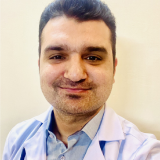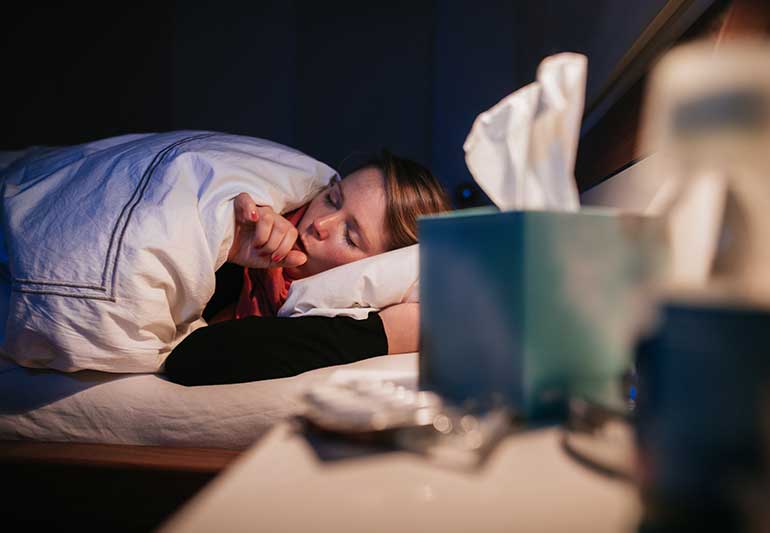



Our body has a biological clock that regulates our sleep patterns throughout a 24-hour cycle. Normally, this internal clock responds to light changes to tell us when to sleep and when to be alert.
When this biological clock is out of sync with our social clock, it causes circadian rhythm sleep disorders, which can have serious health and mental impacts if left untreated.
Below, we look at circadian rhythm sleep disorder causes, types, symptoms, and how to prevent or manage it.
What is Circadian Rhythm Sleep Disorder?
Circadian sleep disorders are problems that arise when our internal clock is not working properly. These problems occur when our biological clock is not in sync with the environment.
Who is Affected by Circadian Rhythm Disorder?
To understand who suffers from a circadian rhythm sleep disorder, let's first go through the different types of circadian rhythm disorders.
The most common circadian rhythm disorders are:
Advanced Comment start sleep phase syndrome (ASPS)- seniors and autistic adults
If you have advanced sleep phase syndrome, you consistently go to bed earlier and wake up earlier than the socially desired time. An example of ASPS is consistently falling asleep at 8 PM and waking up at 4 AM. Advanced sleep phase syndrome is mostly common among seniors. Comment end
Shift work sleep disorder (SWSD)
Shift work sleep disorder affects people who work shifts outside the traditional 9 to 5 workday. People with this disorder feel more tired and have trouble falling asleep due to trying to fall asleep when the body is sending strong, alert signals. SWSD is common among night shift workers.
Jet lag or time zone change syndrome
This temporary circadian rhythm disorder can affect anyone who goes through more than two time zones within a short time.
Causes of Circadian Rhythm Sleep Disorder
Disrupted sleep-wake patterns are the major reason for circadian rhythm sleep disorders. That said, different things can increase your risk of these disorders, including:
-
Irregular work schedules- working outside of traditional work hours increases your risk of shift work sleep disorder.
-
Environment or occupation- pilots, flight attendants, and people who travel frequently for business are at a higher risk of experiencing jet lag syndrome.
-
Age- teens are at a higher risk of DSPS because they tend to sleep later and wake up early for school and work reasons. Conversely, older adults who sleep earlier than normal are more likely to suffer DSPS, jet lag, and shift work syndrome symptoms.
-
Common eye conditions that affect light perception include blindness and macular degeneration.
-
Mental health conditions and Traumatic Brain Injury (TBI)
-
Unhealthy sleep habits, such as staying up late into the night
-
Lifestyle habits, for instance, drug and alcohol use and prolonged exposure to artificial light at night
Common Symptoms of Circadian Rhythm Sleep Disorder
People with circadian rhythm sleep disorders may have various symptoms, including:
-
Difficulty falling asleep
-
Difficulty staying asleep
-
Excessive sleepiness during the day
-
Mood disturbances
-
Sleep loss
-
Waking up grumpy
-
Poor performance at school or work
-
Problems maintaining personal relationships
Diagnosis and Treatment
Circadian rhythm sleep disorder symptoms like excessive daytime sleepiness and poor school and work performance can negatively impact one’s life quality. We recommend seeking professional help if these disorders are taking a toll on your sleep and well-being.
Circadian rhythm sleep disorder diagnosis starts with a physical exam to rule out potential medical conditions affecting your sleep quality. The sleep expert will inquire about how long you sleep, caffeine use, and personal and family health history, among other things.
The doctor may recommend sleep assessment tests like actigraphy. Your doctor may also recommend further laboratory tests to determine the type of circadian rhythm sleep disorder you suffer from.
Treatment options for circadian rhythm sleep disorders vary depending on the type. Your doctor will tailor the treatment to your disorder and sleep pattern to restore the proper sleep-wake cycle.
Common circadian rhythm sleep disorder treatment options include:
-
Light therapy
-
Melatonin supplements
-
Chronotherapy (drug-free adjustment of sleep and wake times)
-
Prescription medication (in severe cases)
Managing Circadian Rhythm Sleep Disorder
Follow these tips to manage circadian rhythm sleep disorder:
-
Maintain a consistent sleep schedule
-
Practice a bedtime routine
-
Exercise regularly during daytime
-
Avoid vigorous physical activities later in the day, more so two hours before bed
-
Limit or avoid daytime naps
-
Limit caffeine and alcohol use close to bedtime
Conclusion
A healthy sleep-wake cycle is essential for our moods, digestion, appetite, memory, and appetite. Repeated sleep disruptions can lower life quality and poor school and work performance. If you think you’re suffering from a circadian rhythm sleep disorder, proper diagnosis and treatment can help reset your internal clock.
FAQs
-
What is circadian rhythm disorder?
Circadian rhythm disorder is when there’s a mismatch between your internal clock and the sleep-wake cycle required in your environment.
-
How does circadian rhythm affect sleep patterns?
It regulates our sleep-wake cycle in response to light changes in our environment.
-
What are the primary causes of circadian rhythm sleep disorder?
Circadian rhythm sleep disorders can be caused by:
-
Lifestyle habits, for instance, staying up late
-
Jet lag
-
Working night shifts
-
Medications
-
Eye conditions that affect light perception (e.g. blindness)
-
Traumatic brain damage
-
What are the common symptoms of circadian rhythm sleep disorder?
The most common symptoms include sleep loss, insomnia (difficulty falling asleep), extreme daytime sleepiness, memory loss, and problems maintaining personal relationships.




